HOME > Basketball
After Ross left the NBA, he is continuing to warm the world with another sport
2:49pm, 28 July 2025【Basketball】
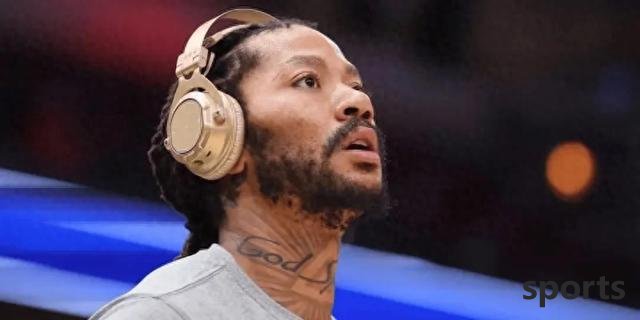
TA/ Joel Lorenzi
Standing in front of NBA colleagues and chess masters, countless basketball fans and chess fans, every word from Derek Ross was as heavy as a dumbbell pressing in his throat with a 30-pound dumbbell.
He spoke on stage to a group of audiences who he was not sure if they would appear. The ChessTival chess championship held at the Wynn Hotel in Las Vegas was a hard-working project he planned, and was his interest in trying to amplify his secrets but had been with him for many years. All this made him particularly nervous.
Rose never had to convince people to see him play for the Chicago Bulls. His sense of belonging does not require any confirmation. He is the local MVP who will always fly in the air. However, during his players’ time, Ross, like most NBA players, hid his latest obsession very deeply and was so low-key that he almost became a taboo.
And last Sunday was the first time he really took a step from this secret, a big step towards "promoting the sport".
Ross said of chess: "There are 600 million people playing chess around the world, but everyone is very quiet. Now I want them to speak out loud or let more people pay attention to the sport, knowing that it has existed for thousands of years."
Ross did not realize until his NBA career ended that he was not the only player to play chess. On Sunday, he lined up these peers and sat on the stage to pair up with world-renowned chess masters to play chess. Rajon Rondo was one of his most intense opponents; he and Tony Snell worked in the same locker room for three years; Drew Gooden was one of the Bulls' veterans in his rookie season, but they never talked about this game they all secretly loved.
Ros originally imagined that all this should have been staged in Madison Square Garden a few years ago. With patience, his ambitions eventually fit into the efforts of the Freestyle Chess Tour and the co-founder of the event, the world's No. 1 chess player Magnus Carlson and Young Henrik Bitner.
Carlson and other supermasters such as Hikaru Nakamura and Fabiano Caruana, teamed up with active and retired NBA players to compete in a live single knockout match to compete for a $25,000 prize for their chosen charity. These chess experts stood behind the players during the game and guided them to play chess, but in the next second round, in a five-round round game, more NBA players competed for more bonuses, while chess experts had to let go and let the players play chess independently.
The whole night of the game adopts the "freestyle chess" rule. The soldiers on the board keep the traditional starting position unchanged, but the chess pieces in the back row are arranged randomly.
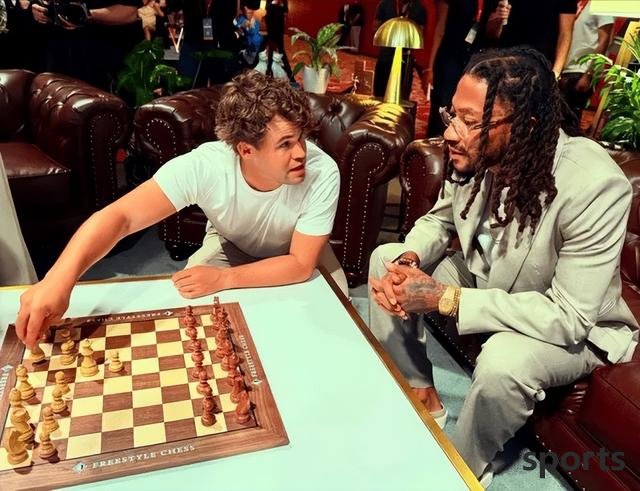
Ross is an investor in the "Freestyle Chess Tour" and he has long been familiar with everyone on the stage. He has watched Carlson's live game, and has watched other super masters on YouTube, drawing inspiration from their chess game and becoming a keen interest in their character. He also told Carlson that he had always wanted to know whether the conversation between the players in those competitions was true or "breaking nonsense".
Rose nodded silently when Carlson, who eventually became his partner's supermaster, pointed out some theoretical offensive methods. While playing chess, he laughed from ear to ear and urged the referee to check whether the opponent had violated the rules.
For the next few minutes, he stopped talking and glanced at the board with his eyes focused, just like he was changing hands on the court. His current "jump" is no longer full of explosive power, but rather pays more attention to calculation and strategy. But even Carlson could not save his fate of being eliminated in the first round. When Ross made that fatal mistake, the audience sighed at the same time.
Ros said: "I always feel anxious when playing basketball, but I never feel anxious when playing chess. But strangely, losing on the chess board feels worse than on the basketball court. After losing chess, I even have the urge to fight. On the basketball court, I have never been so angry."
"In the chess game, failure is the most precious thing. It will make you truly realize the importance of a move. And that move is actually like a choice in life."
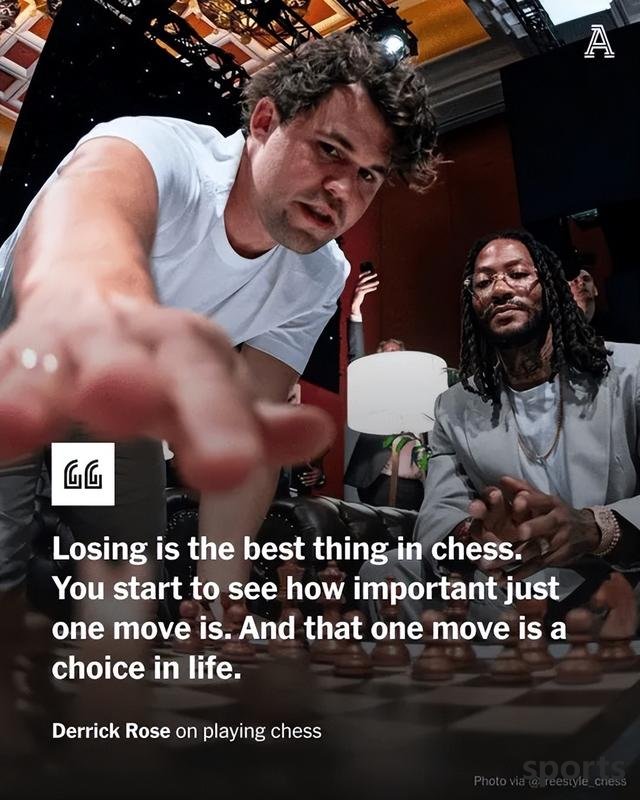
His favorite way to start is Sicily defense, which is a strategy that no longer copy the opponent's first step, but actively breaks symmetry and creates confrontation early.
He said: "I also have a unique style of playing chess."
This obsession began after adulthood. Ross was looking for ways to train his thinking, and accidentally came into contact with chess. Soon, he was deeply attracted by the rules, defense systems and the infinite selectivity contained therein.
Ros said: "I have always believed that when people get old and sublimated, all they can take away is memories, and I want to make sure that when I grow old, my mind remains clear."
Ros couldn't help but imagine what would be the difference if I had been exposed to chess when I was a child. The child who grew up hard and rose hard in Englewood may have more choices because of this. His current investment in this game is his hope to bring the "chess pieces" he did not have at that time to the new generation of children.
Ross said: "This is my goal: to let children think critically. I have said before that, where I grew up, let children think for a second before pulling the trigger and hurting others, and that it may change everything."
"I think if they were exposed to this game since childhood, it might be a preventive effect. I'm not saying it's the ultimate solution, but it has to start somewhere. I believe it can be a starting point."
Ross expressed his respect for the players who have devoted years of hard work but can only survive, those who have seen more "going" than making money.
Ross said: "Some people have devoted their whole lives to the sport, man, someone must take care of them." One of Ross' concerns is whether his investment will be misunderstood as a whim. Despite his obsession with "freestyle chess", he has no intention of devalued traditional chess.
Ross said: "We are not trying to kill the sport or treat it in a vulgar way. We are adding new elements to the sport. Traditional chess will always be there, just like basketball will always be there, but you will also have the All-Star game to catch people's attention."
He looked at the rows of dimly lit seats in the carpeted banquet hall of Wynn, with a chair set on a worn Bulls jersey replica. The dark color has long faded to gray, and the letters have begun to peel off. And the jersey made of red polyester fiber is sewn with loyalty. The trajectory of his life is also formed by this thread.
His life after retirement was devoted to half of his time in his own construction company, and his other half ran a flower shop. But in fact, chess was already a part of his life when he was still playing. It accompanied him through the most glorious moments and also accompanied him through the darkest days. Over the years, he has kept this obsession deep in his heart, like the board he carried with him and always folded in his last season.
On Sunday, when he saw the enthusiastic response from his two worlds, basketball and chess, a vague regret appeared between his words and expressions: as if he wished he would openly put the status of chess on the stage of his life earlier.
Ross walked around during the game, watching the players progress. In the corridor of the venue, he met the NBA champion, Tony Allen, an old friend from Chicago. Allen said that when he heard that Ross was going to organize this event, he felt that he had to come. He knew better than most people that this seed had been planted many years ago. It was Rose who introduced chess to his son for the first time.
Aron sighed, "It's incredible. Ross is the first person to put a chessboard in front of my son."
Ros nodded with a proud look on his face: "I've told you a long time ago, brother."
source:7m enRelated Posts
- Tyron Lu talks about superstar breakup: If Irving has not left the team, I think James will stay with the Cavaliers
- American News: The Lakers are expected to maintain their current lineup and enter training camp. They look forward to Vincent & Kleber s performance
- Stockton: NBA s current style is weak; they are all jumpers, players love load management; their salary is still high
- The Rockets have signed 4 players in a row, the Clippers finally take action, and the Warriors target appears
- Morant bid farewell to Bain: 5 years of brotherhood breaking, muscle shooter shoots magic to change the Eastern Conference pattern
- More than the third brother! Homgren becomes the X factor?
- Funny, Brunson was named the 2025 NBA Playoffs Best Offensive Player and Worst Defensive Player
- Why can t the Los Angeles Clippers win the NBA championship?
- Amen s "fake PG" effect is outstanding: 19+7+6 in three quarters, relaxed and enjoyable. Fan Jordan s reimbursement is good for him
- Very suddenly! Retired?! Simmons doesn t want to fight anymore?
Hot Posts
- Tyron Lu talks about superstar breakup: If Irving has not left the team, I think James will stay with the Cavaliers
- American News: The Lakers are expected to maintain their current lineup and enter training camp. They look forward to Vincent & Kleber s performance
- Stockton: NBA s current style is weak; they are all jumpers, players love load management; their salary is still high
- The Rockets have signed 4 players in a row, the Clippers finally take action, and the Warriors target appears
Recommend

Rick Barry: The NBA should set up two MVP awards: Eastern MVP and Western MVP

Crazy! 8 signings in one night, 28+10 shooters join the Lakers, 6 steals thieves join the Warriors
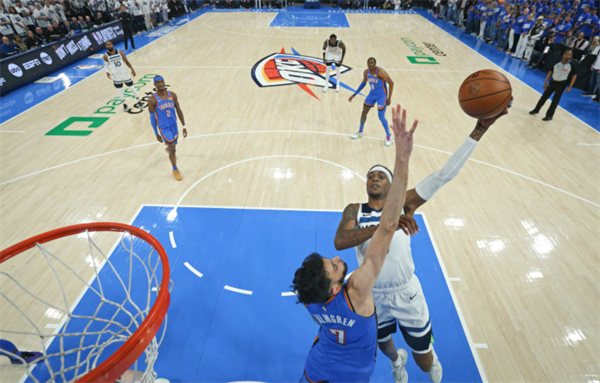
Can t believe it! He is a boss, still the No. 1 pick, and the second to last in the Western Conference Finals.
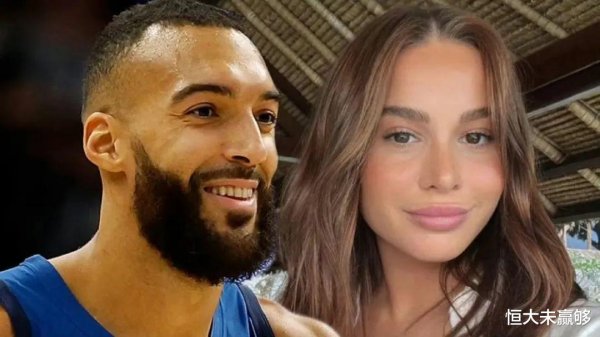
The Western Conference did not hit the backyard and caught fire! Exit his wife! Gobert was hated?

Paul talks about the passion of Clippers home fans: I love this team and the fans, this is great

The sky collapsed and the start! The 76ers in the new season, the worst situation is to rebuild?

The NBA s sky is falling, Xiao Hua shot a stone in his own foot, Yang Hansen may also be affected

Haynes: This year s G League champion coach Quinton Crawford has agreed to become the Trail Blazers assistant coach